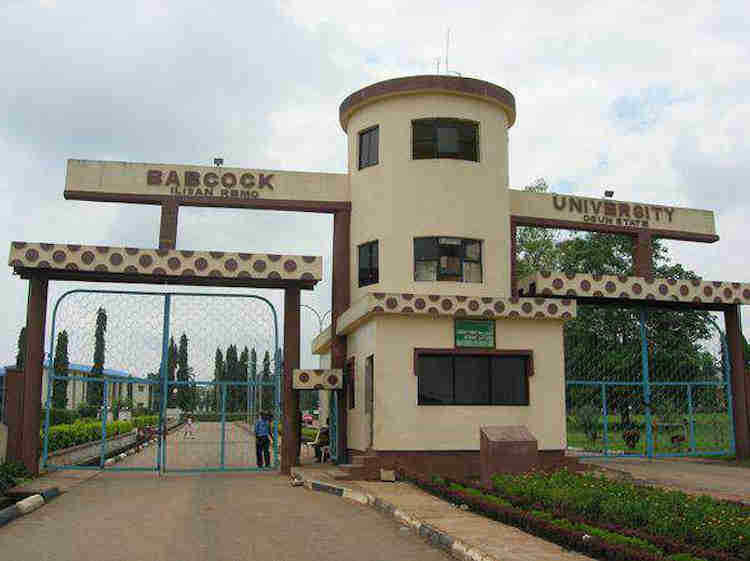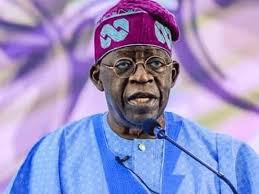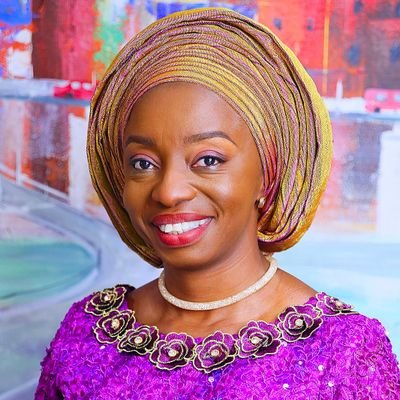In 2008, the Justice Mohammed Uwais-led Electoral reform committee recognised and voiced the need for women’s inclusion into politics and governance.
The 22-member Electoral Reform Committee had been constituted by the late former President, Umaru Musa Yar’Adua, after the 2007 elections to examine the entire electoral process.
In its final report, the Committee noted, “One of the major problems of our electoral system over the years has been the near exclusion of critical sectors of the population such as women from governance. There is urgent need to evolve an electoral system which ensures that while elections are free, fair and acceptable, all major stakeholders in the electoral process, especially the political parties that perform creditably, women and other interest groups, are not sidelined in the emerging governments.”
Before the Uwais Committee, in September 1995 the United Nations convened the Fourth World Conference on Women in Beijing, China. At the conference – which focused on action for equality, development and peace – the 189 governments represented adopted the Beijing Declaration (BD) and Beijing Platform for Action (BPFA) aimed at accelerating the implementation of the Nairobi Forward Looking Strategies in order to achieve greater equality and opportunity for women to realise their full potential and human rights. The conference also had in attendance more than 5,000 women and men representing many non-state actors, who equally endorsed the outcomes of Beijing.
The principal themes at the Fourth World Conference on Women were the advancement and empowerment of women in relation to twelve critical areas which included: women’s human rights; women’s economic empowerment; women, leadership and decision-making; women’s dignity and bodily integrity in order to eliminate all forms of discrimination and violence against women, among others.
Nigeria was part of the agreement including the subsequent reviews of the success of the Beijing Conference.
As a fall out of that Conference, the 35 percent affirmative action for women – an international policy that demands 35 percent involvement of women in all governance processes emerged. In an effort to promote the affirmative action, a National Gender Policy was formulated in Nigeria.
In spite of all these, women’s participation and representation in politics and governance remain low, falling far below 35%.
There is no doubt that women have proven their mettle in several other areas such as the academia, media, economy among others, breaking grounds in politics, however, seem to have remained an uphill task.
Successive governments in the country on their part also seem not to see the need to have more women in governance going by available statistics.
According to Dr. (Mrs.) Nkechi. Nwankwo, Executive Director, Women Leadership Group (WLG), a not-for-profit, non governmental organisation, “during President Goodluck Jonathan’s administration, there were seven women (out of 109 members) in the 2011 Senate; and in the House of Representative there were just 12 women (out of 360). That works out at 6.4% (senate) and 3.3% (House).
For the Buhari administration in 2015, women in the Senate remained at seven (out of 109) and in the House of Representatives, 21 (out of 360). That is 6.4% (senate) and 5.8% (House).
“With ministerial appointments, Jonathan had 13 women out of 44 cabinet members, that is 29.5%. By contrast Buhari started with 7 women ministers out of 44 cabinet members, that is 15 percent.
“Needless to point out that the above falls short of the minimum 35% representation of women stipulated in the National Gender Policy. Even more challenging is that there is no system in place and no legal requirement for its implementation and, therefore, no sanctions for lack thereof.”
Early on in his administration, President Buahri made it clear that there would be no “Office of the first Lady,” an office which in the past had helped to put women and women issues on the front burner. Besides scrapping the office of the First Lady, the President went a step further to ‘condemn’ his wife and in essence all women ‘to the other room,’ effectively putting an end to any debate on the value he places on women and their ability to meaningfully contribute to governance in the country.
From his comments and body language, one can easily conclude, and rightly so, that the few women in his cabinet are there just to fulfill all righteousness.
Some observers have expressed the view that part of the reasons why there are few women in elective positions is because most women shy away from presenting themselves for such elective offices.
Why is that so? Mrs. Olufunke Fadugba, retired General Manager News and Current Affairs Raypower Fm and now an educationist and school proprietress, answers thus; “The Nigerian woman has continued to be a symbol of everything positive when opportune to have the mantle of leadership. This is in spite of the myriad of challenges she is faced with including sometimes antagonism from other women which could be out of envy or brainwashing from the male counterpart.
“The factors inhibiting the participation of significant number of women in active politics range from financial inability, lack of mentoring, cultural inhibitions and overbearing attitude of men. I recall when I was to be secretary of Lagos NUJ as the first female to hold that office, it was not easy for the caucus to give me the nod. We were two females only vying for the post with about 10 males. I was just lucky to have a strong male voice in the group to over shadow others who felt I would do better in my husband’s kitchen.”
Mrs. Cordelia Onu, a former Editor, identifies two major problems, paucity of funds and the deviousness among the political class. She goes further to raise a additional question; “Even if you manage to raise funds, how do you mix up with the present crowd?”
It was Constance Baker Motley, a civil rights activist, lawyer and the first African American woman appointed to the federal judiciary in the US, who said, “Something which we think is impossible now is not impossible in another decade.”
So, can women overcome? Mrs. Onu says; “One solution is for women to start pulling together to raise money for each other. Another is for women to get more tutelage on means of navigating the treacherous political terrain.”
She also believes that the affirmative action is attainable if political parties can agree to reserve certain tickets for women at all levels.
Mrs. Fafugba suggests that “the main caucuses of the political parties should be gender sensitive or else it would remain a case of the camel passing through the eye of the needle.”
She also advocated a “change in cultural perception of what women are capable of doing. Women are endowed naturally with inbuilt capacity to grow institutions the way we grow homes,” suggesting that; “Beyond the tokenism of political parties claiming that women can obtain forms for primaries free, they should be supported to win.”
She too posed a question; “How many such free form contestants have seen the light of the day?”
Mrs. Fadugba suggested that women who have risen in politics should mentor others “so we can also have the emergence of political god mothers,” even as she condemned the attitude of “let me alone shine among the men as selfish.”
Dr. Nwankwo, speaks further on how the affirmative action can be achieved. “Let’s be clear: without legal backing, it will be difficult to achieve affirmative action. In the over 30 countries across the world where affirmative action has been used to good effect to promote women’s political participation, it is backed by law.
“Once the Nigerian government failed to adopt the gender affirmative action recommendations in the Justice Uwais Report and the National Assembly jettisoned the memos and suggestions by numerous civil society groups on affirmative action in the electoral law, they set up the current situation. Because the political system has produced a lot of imbalance and thrown up so many obstacles against women, special measures will be required to redress them. We can only ignore that point to our collective detriment.
“As to how we could use an affirmative action law to correct the skewed representation of women, there are multiple levels of application. At the level of appointments at federal and state levels, this should be reasonably easy to implement by requiring gender balance in the nomination (and appointment) of qualified candidates.
“With regard to elective offices, an affirmative action law would require that a relatively high proportion of female candidates be nominated by the political parties. It would regulate the behaviour of political parties and create incentives for parties to nominate more women. There will also need to be a clear system to monitor compliance with the policies to ensure full implementation.
READ ALSO: SPECIAL FEATURES: Should priests be allowed to marry?
“In addition, we would need to develop tools for gender monitoring of nominations and elections, and multiple measures, such as capacity-building programmes, would have to be developed and applied. These are not too difficult to achieve with the political will and legal backing to implement the affirmative action.”
Former President Olusegun Obasanjo once said that women were more reliable in politics than the men and that politics must be played with the decency, dignity and honour that women are known for.
He was quoted to have said; “In politics, women are more reliable than men. When a woman says she’s with you, you can really take that she is with you.
“But if a man tells you he is with you and you catch him in another meeting, he will tell you it is politics. It should not be so.”
The 2019 general elections are fast approaching. A few women have already indicated interest in vying for some offices including the presidency, and more will come out as time goes on.
As Nigeria grapples with the leadership question amid the dramas that we are treated to on a daily basis, one question every Nigerian should give serious thought to without any bias or prejudice is, is it not time to try out the womenfolk and if our nation can be rescued?
Former British Prime Minister, Mrs. Margaret Thatcher once said; “If you want something said, ask a man; if you want something done, ask a woman.”
Have we not talked enough?











